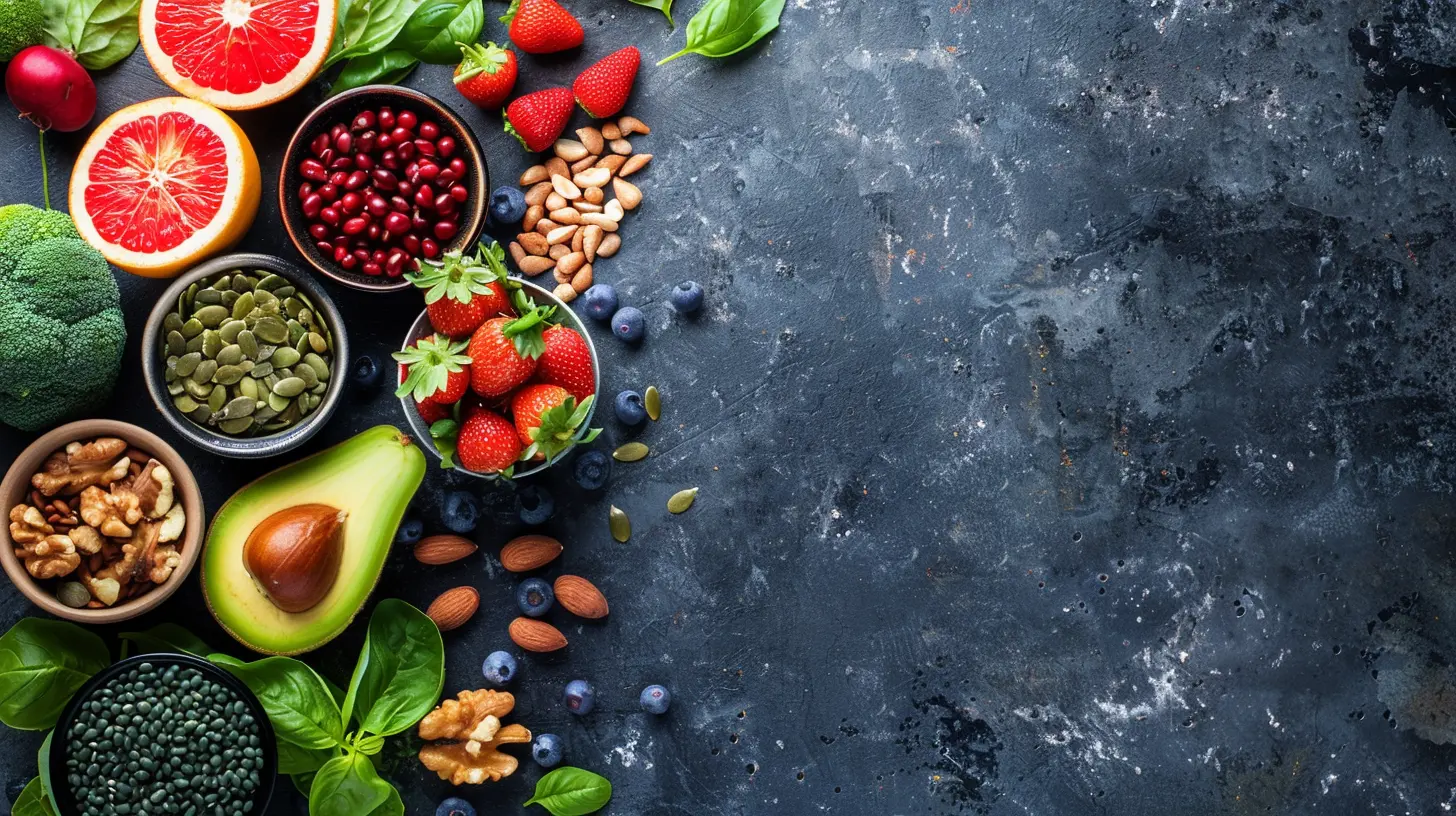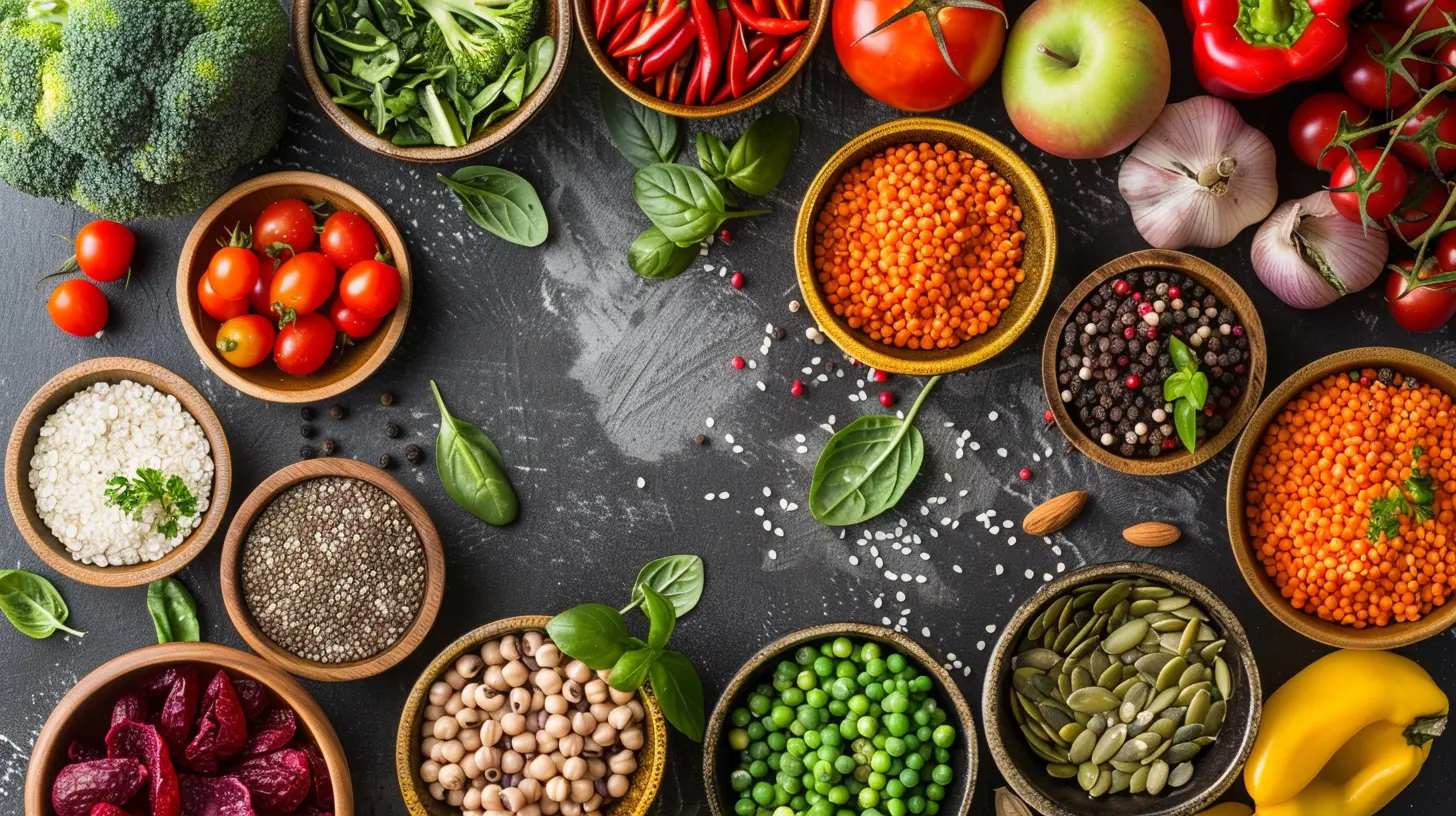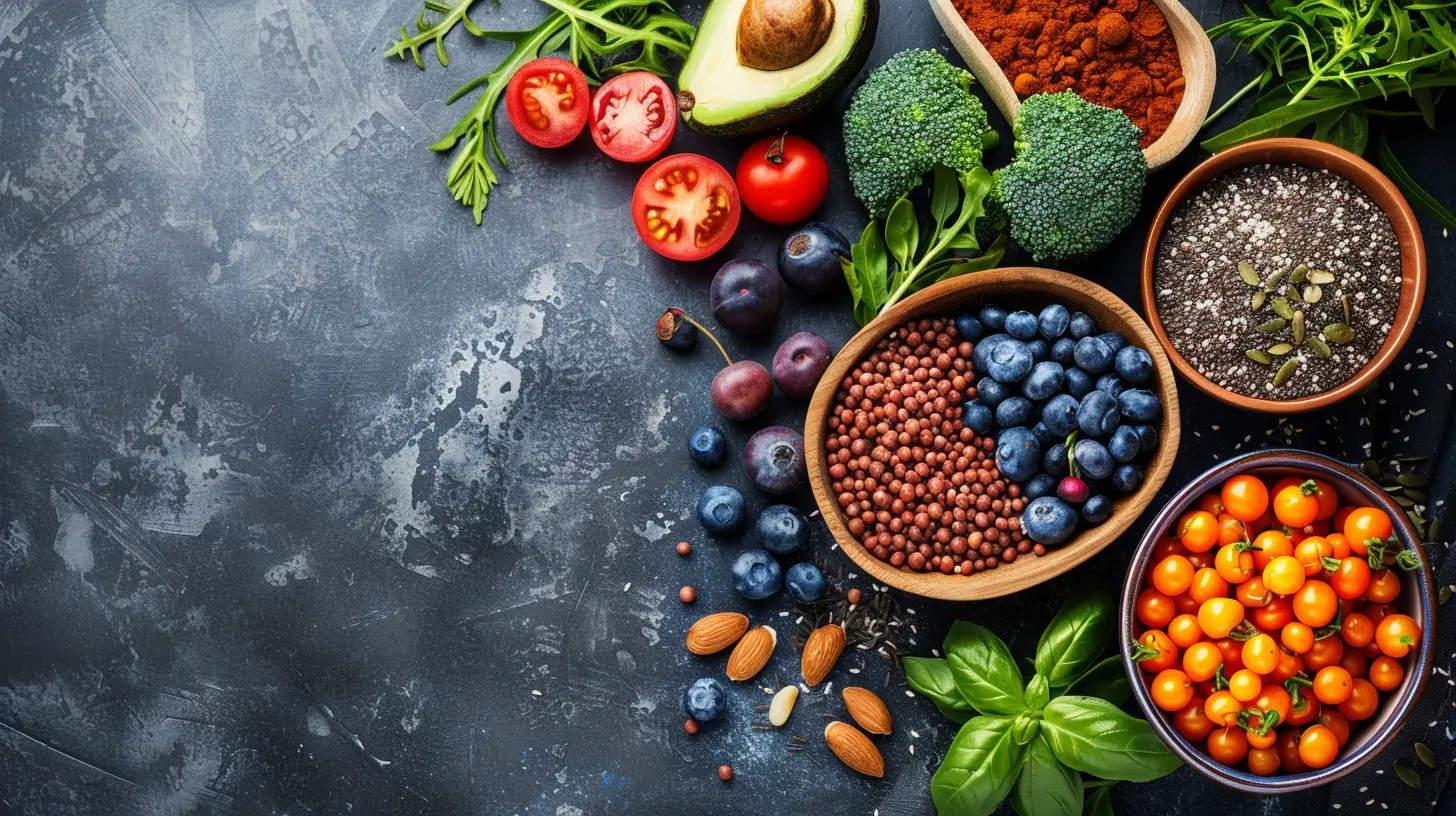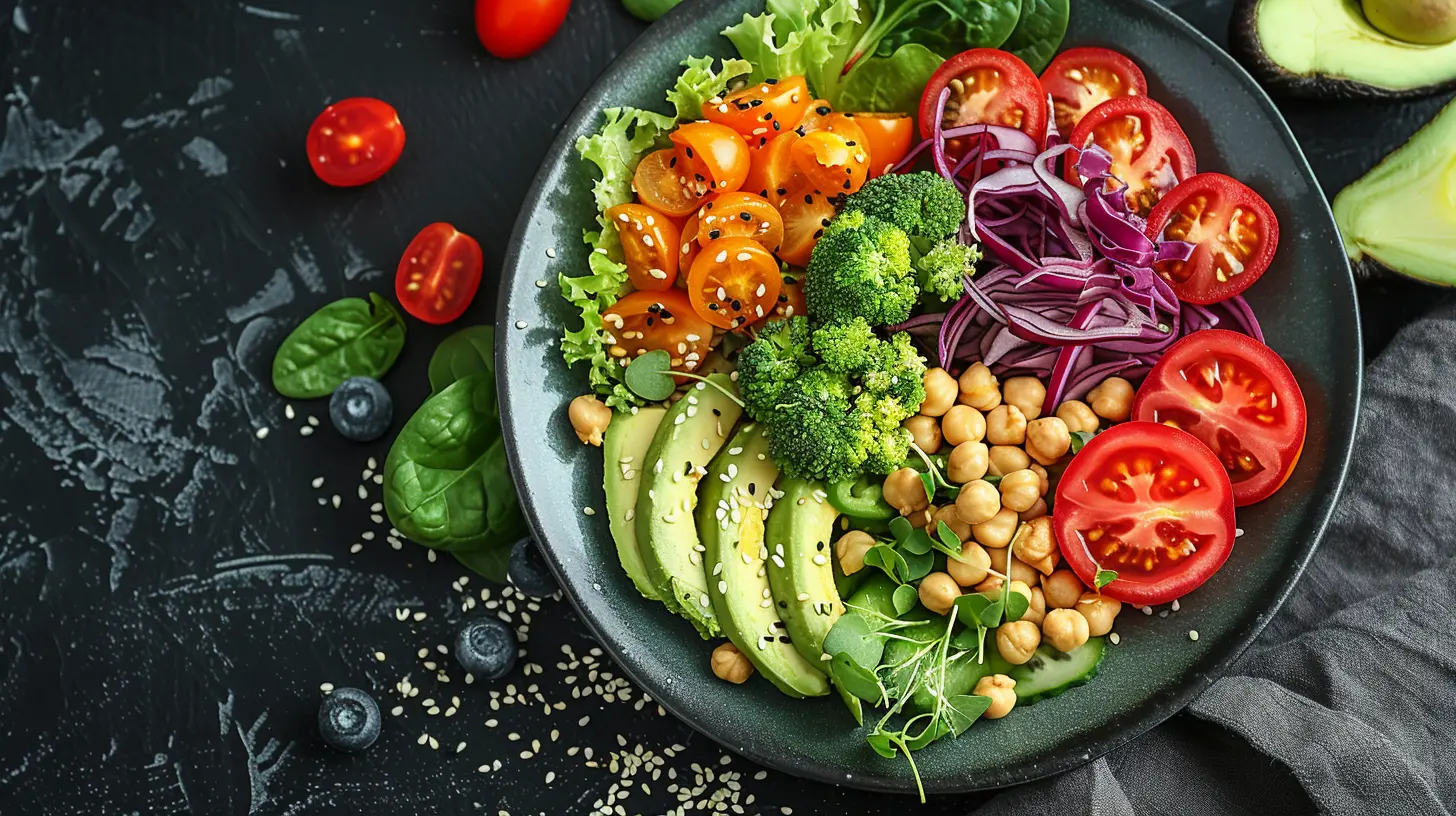Plant-Based Diets for Athletes: Optimizing Performance Naturally
3 July 2025
If you're an athlete or even just someone who trains like one, you’ve probably heard the buzz about plant-based diets. Maybe you're curious. Maybe a teammate swears by it. Or maybe you're just wondering how someone can build muscle, recover fast, and crush workouts without scarfing down chicken breast and protein shakes all day.
Let’s be real — performance matters. And the food you eat? That’s your fuel. So, can plants really power athletes to perform at their peak? Spoiler alert: Absolutely. But like any well-oiled machine, it's all about getting the right parts in place.
In this post, we’re diving deep into how athletes can go plant-based and still hit (or surpass) those performance goals. No fluff — just practical, science-backed, real-life stuff. Grab your smoothie and let’s dig in.
Why More Athletes Are Turning to Plants
Have you noticed top athletes like Novak Djokovic, Venus Williams, or Lewis Hamilton switching to plant-based diets? This isn’t just a trend — it’s a movement. Athletes are realizing that plant-based eating isn’t about restriction; it’s about optimization.So, what’s the big deal with plants?
Plants deliver high-octane nutrition. They’re rich in antioxidants, fiber, vitamins, and minerals. Unlike heavy animal-based meals, plant-based foods are easier on the digestive system, allowing your body to focus on recovery and performance.Plus, when done right, plant-based diets can reduce inflammation, boost endurance, and even improve heart health — all game-changers for anyone chasing performance.
How a Plant-Based Diet Supports Athletic Performance
Let’s break this down. What do athletes truly need to perform at their best? Energy, recovery, strength, and endurance. Here’s how plants stack up:🔋 Energy Levels
Carbohydrates are the body's main energy source — especially during exercise. Whole grains, fruits, legumes, and starchy vegetables are carb powerhouses. These complex carbs provide sustained energy without the crash.No more feeling like you’ve hit a wall halfway through your run.
💪 Muscle Building and Repair
“But where do you get your protein?” — the classic question. Truth is, plants have plenty. Lentils, chickpeas, tofu, tempeh, edamame, quinoa, seeds — the list goes on.These foods contain essential amino acids your muscles crave. Pair them right (think rice + beans) and you’re golden.
🕒 Faster Recovery
Training hard? Recovery matters just as much. The antioxidants and phytonutrients from colorful veggies and fruits fight off oxidative stress and reduce muscle soreness.Think of it like your body’s own personal clean-up crew — working overtime so you can get back on the field, track, or gym faster.
❤️ Cardiovascular Health
A healthy heart pumps more blood and oxygen to your muscles. The fiber and nutrients in plant foods lower cholesterol, reduce blood pressure, and boost circulation — all crucial for stamina and endurance.
Key Nutrients Athletes Need on a Plant-Based Diet
Sure, plants have what you need — but you’ve got to be strategic. Let’s talk essentials.1. Protein
You’re not going to bulk up on lettuce alone. Aim to include high-protein plants like:- Lentils
- Beans
- Tofu/Tempeh
- Seitan
- Edamame
- Quinoa
- Hemp, chia, and pumpkin seeds
- Plant-based protein powders (pea, rice, soy, etc.)
Spread your protein intake across meals to help muscle repair throughout the day.
2. Iron
Critical for oxygen transport — pretty important when you’re pushing your body.Great plant sources:
- Lentils
- Spinach
- Pumpkin seeds
- Tofu
- Fortified cereals
Tip: Pair with vitamin C (like citrus fruits or bell peppers) to boost absorption.
3. Vitamin B12
This one’s a must-supplement. B12 is mainly found in animal products, and deficiency can mess with your energy levels and nervous system.Opt for:
- B12-fortified foods (plant milks, nutritional yeast)
- A quality B12 supplement
4. Omega-3 Fatty Acids
These healthy fats fight inflammation and support joint health.Plant sources:
- Flaxseeds
- Chia seeds
- Walnuts
- Algal oil (a fish-free fatty acid supplement)
5. Calcium and Vitamin D
Bone strength matters, especially when you’re putting stress on your body. Thankfully, you’ve got options:- Soy, almond, or oat milk (fortified)
- Kale, broccoli, bok choy
- Tofu (calcium-set)
- Mushrooms (vitamin D2)
- Supplements in winter or low sun exposure
6. Zinc and Iodine
These trace minerals help with immunity and thyroid health.Load up on:
- Whole grains
- Legumes
- Nuts and seeds
- Iodized salt or sea vegetables (for iodine)
Building a Winning Plant-Based Meal Plan
Let’s piece it all together. You want meals that are:- Nutrient-dense
- High in complex carbs and protein
- Easy to digest
- Delicious (because why suffer?)
🌞 Pre-Workout Meals
Carb-focused, with a little protein and minimal fat for quick digestion.Try:
- Oatmeal with banana and almond butter
- Whole grain toast with peanut butter and sliced strawberries
- Smoothie with oats, a banana, and plant-based protein powder
💪 Post-Workout Recovery
Protein + carbs = muscle repair + glycogen refill.Ideas:
- Quinoa bowl with black beans, roasted veggies, and tahini
- Protein smoothie with spinach, frozen berries, flax, and protein powder
- Whole grain pasta with lentil marinara
🥗 Everyday Meals
You want a balance at each one:- A grain (brown rice, quinoa, whole wheat pasta)
- A legume (beans, lentils, chickpeas)
- Veggies (aim for variety and color)
- Healthy fats (avocado, seeds, olive oil)
Supplementation Tips for Plant-Based Athletes
Even the best diets sometimes need a little boost. There’s no shame in the supplement game.Here are the go-to’s:
- Vitamin B12 (essential for nerve function)
- Vitamin D (especially during winter or if you're indoors a lot)
- Omega-3 (DHA/EPA) from algae oil
- Creatine (not essential, but can improve power output — and it’s vegan-friendly)
- Iron (if blood tests show low levels)
Pro tip: Get regular bloodwork. Know where you stand and adjust accordingly.
Busting Myths: Plant-Based Diets & Athletic Performance
Let’s clear the air.❌ Myth: “You can’t get strong or gain muscle without meat.”
Ask any powerlifter who thrives on tofu and chickpeas. Muscle growth is about resistance training and enough protein — not about eating meat.❌ Myth: “Plant-based diets are too low in calories.”
Not if you eat enough. Plant foods are less calorie-dense, so you might need to eat bigger portions or add extra healthy fats. Trust me, no one’s turning away an extra scoop of guac.❌ Myth: “You’ll feel weak.”
Actually, many athletes report feeling lighter, more energized, and recovering faster. It’s all about doing it right and eating whole, nutrient-dense foods.Real Talk: Challenges You Might Face
Let’s be honest — no diet is perfect. Going plant-based takes some adjustment.🍽️ Eating Out Can Be Tricky
But it's getting easier. More restaurants now offer vegan options. Plan ahead, ask questions, and don’t be shy about customizing.🔄 Social Pressure
You might get side-eyes or questions like “But bacon though?” Stay confident. You’re fueling your body with intention — and that’s powerful.🕒 Meal Prep Takes Time
Truth. But once you get the hang of batch cooking grains, beans, and chopping veggies ahead of time, it becomes second nature.Inspiring Athletes Who Are Plant-Powered
Need some motivation? Look at who’s thriving plant-based:- Rich Roll – Ultra-endurance athlete, author, and podcast host
- Venus Williams – Tennis legend who went plant-based for autoimmune health
- Lewis Hamilton – F1 champion with a fully vegan lifestyle
- Scott Jurek – Ultramarathon runner crushing 100+ mile races
These aren’t just hobby athletes — they’re world-class. Living proof that plants power performance.
Final Tips for Success
Ready to give this a try? Awesome. Here’s how to hit the ground running:- ✅ Start slow — swap one meal at a time
- ✅ Focus on whole, unprocessed foods
- ✅ Pay attention to protein and iron
- ✅ Stay hydrated (plants have more fiber)
- ✅ Don’t fear healthy fats – you need them
- ✅ Supplement wisely (especially B12)
- ✅ Listen to your body
And most importantly — don’t stress over being perfect. You don't have to go 100% vegan overnight. Even small shifts toward plant-based eating can make a big difference in how you feel and perform.
Bottom Line
Going plant-based as an athlete isn’t about giving things up — it’s about leveling up. You're not just eating for taste (though plant-based meals can be insanely delicious), you're eating for longevity, recovery, and peak performance.So whether you're sprinting on the track, lifting in the gym, or just trying to keep up with your active lifestyle — a plant-powered plate might just be your secret weapon.
Why not give it a shot? Your muscles, your heart, and maybe even your taste buds will thank you.
all images in this post were generated using AI tools
Category:
Plant Based DietAuthor:

Jackson Mahoney
Discussion
rate this article
1 comments
Zarenith McTier
Great insights on plant-based diets for athletes! Embracing these natural options not only enhances performance but also nurtures overall health. Excited to try some of these tips!
July 20, 2025 at 2:28 PM

Jackson Mahoney
Thank you! I'm glad you found the insights helpful. Enjoy trying out the tips!


